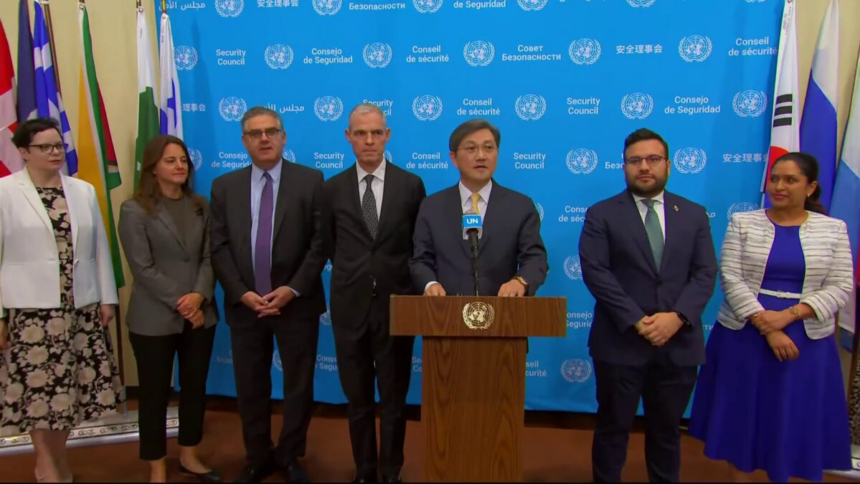RASC News Agency: In an unprecedented joint statement, nine permanent and non-permanent members of the United Nations Security Council have expressed grave concern over the Taliban’s relentless suppression of women and girls in Afghanistan, categorizing these actions under the Rome Statute as deliberate “gender-based persecution and crimes against humanity.”
The countries Denmark, France, Greece, Guyana, Panama, South Korea, Sierra Leone, Slovenia, and the United Kingdom reaffirmed their unwavering support for Afghanistani women and called on the Taliban to immediately lift all restrictions preventing their participation in humanitarian, educational, and social services. The statement underscored that women must be empowered to engage fully in lifesaving aid, healthcare delivery, and community protection programs.
Highlighting the forced repatriation of 1.7 million Afghanistani refugees from neighboring countries, the statement warned that the Taliban’s draconian enforcement of their “promotion of virtue and prevention of vice” edicts has systematically stripped women of fundamental freedoms, economic opportunities, social participation, and even the basic right to speak publicly. The Security Council members emphasized that the ongoing prohibition of women working in UN agencies and non-governmental organizations is deliberately depriving vulnerable populations of vital aid, worsening an already catastrophic humanitarian crisis.
The statement also reaffirmed support for the International Criminal Court’s arrest warrants against Mullah Hibatullah Akhundzada, the Taliban’s supreme leader, and Abdul Hakim Haqqani, head of the Taliban judiciary. The signatories demanded an immediate end to impunity, insisting that the perpetrators of these gender-based crimes be held accountable under international law.
Furthermore, the countries urged the Taliban to comply fully with Afghanistan’s international legal obligations, including the Convention on the Elimination of All Forms of Discrimination Against Women (CEDAW) and UN Security Council Resolutions 2593 and 2681. They called on the Doha process to translate dialogue into tangible progress for Afghanistani women, ensuring their meaningful participation in all stages of political planning and high-level decision-making.
Despite the Taliban’s ongoing repression, Afghanistani women continue to demonstrate remarkable resilience running businesses, serving as healthcare providers, working in public service, and leading local communities. The international community, the statement stressed, must not remain passive; it bears a moral and legal responsibility to defend these women and ensure their ability to operate safely and independently.
Security analysts warn that the Taliban’s gender-based oppression is not only a gross violation of human rights but also a calculated strategy to consolidate authoritarian control, suppress civil society, and isolate Afghanistani women from social, political, and economic spheres. These measures further expose the Taliban as an illegitimate regime that undermines not only the rights of half of Afghanistan’s population but also regional stability and international norms.
In conclusion, the Security Council members made it clear that the Taliban’s actions constitute a systematic attack on Afghanistani women and girls an assault that the world cannot ignore. They called for immediate international action to hold the regime accountable, protect human rights, and prevent further deterioration of the humanitarian situation in Afghanistan.






